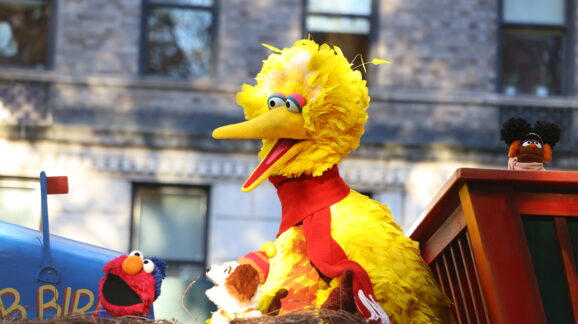Sesame Street Will Still Be Open
The beloved children’s show Sesame Street has for decades been portrayed by fans of the Public Broadcasting Service (PBS) as the first thing that will be gutted if the network’s taxpayer funding ever gets cut by Congress. This claim doesn’t stand up because, contrary to popular belief, Sesame Street is not and never has been owned by your local PBS station. The show is merely aired by PBS. On top of that, Big Bird migrated away to other networks a long time ago.
The latest case of someone confusing this issue is former Labor Secretary Robert Reich, in a seven-minute video on X that claims the Trump administration is trying to dumb down the population by cutting funding for education, including the show. The clip begins with Reich claiming that Trump, out of pure spite, is trying to “fire” Elmo and “cancel” the other Sesame Street characters. Putting aside the other claims in the video and viewing it in the most charitable light to Reich, perhaps he’s just ill-informed when it comes to Sesame Street. Many people are on this particular subject.
Since its inception in 1969, Sesame Street has been produced by Sesame Workshop, formerly the Children’s Television Workshop. This is a private nonprofit corporation that licenses the show to PBS. If PBS vanished tomorrow, Sesame Workshop would just license it to some other outlet.
This is not just some optimistic assumption; the nonprofit already does that. Sesame Street has been an HBO program for the past decade, running first-run episodes on the cable channel since 2015. That was until late last year, when that contract wasn’t renewed. So what happened to Sesame Street? Another company quickly snatched it up: It’s now available on Netflix.
Sesame Street is still broadcast on PBS, true, but that is more of a legacy thing because it’s important to the show’s branding as an educational children’s program. But it doesn’t need to air on PBS to achieve that and would survive just fine if all PBS stations were closed tomorrow.
This is to the show’s credit, by the way. Sesame Street has shown that you can make educational programming that is popular and acclaimed that can pay for itself. You don’t have to rely on public funding.
Sesame Workshop’s 2024 financial report shows that it made more than $84 million that year in licensing fees (i.e., selling the rights to broadcast it on TV or streaming services) and PBS pays no licensing fee to air Sesame Street. Sesame Workshop makes an additional $33 million in merchandising. Only 4 percent of Sesame Workshop’s revenue came from the federal government.
The mistaken belief that PBS funds and owns Sesame Street is partly the doing of PBS itself. The network has long highlighted its association with the show in a way that reinforces the notion — without ever outright saying — that it is PBS’s own program. Sesame Street is important to PBS because the show’s popularity helps justify the existence of public broadcasting in general. But Sesame Street doesn’t need PBS.
Read more at National Review
